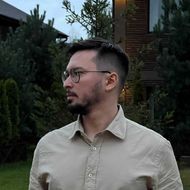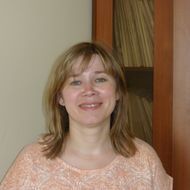Doctoral Schools 2016: What Applicants Can Expect
How HSE’s Doctoral Programmes Are Structured
There are currently 13 different doctoral schools at HSE, and one more will be added soon – the doctoral school in physics – as this is becoming one of HSE’s more prominent fields of study. In total, HSE’s doctoral schools are expecting to accept 340 individuals.
Upon being accepted to a doctoral programme, some of the best applicants might be offered a spot in the full-time advanced doctoral programme. As part of the programme, students receive a stipend of 30,000 rubles per month, and from the programme’s onset they are given the opportunity to participate in some of HSE’s various research groups, laboratories, and institutes. These students are, however, also expected to meet higher expectations, particularly in regards to the number of articles published in international peer-reviewed journals. The advanced doctoral programme began in 2010 with the economics and sociology schools, but the programme now covers all areas of study, from the humanities to the technical sciences.
Other doctoral students will have the opportunity to receive scholarships as well. Depending on the results of their research activity during the first year, PhD students might be awarded special scholarships comparable to those offered in the advanced doctoral programme. It is ultimately up to the HSE Academic Fund to decide who receives which scholarships and stipends.
HSE also partners with a lot of foreign universities and research centres, which is why dozens of PhD students have written their dissertations abroad.
The Doctoral Curriculum
As a national research university, HSE has the right to develop its own educational standards. ‘Not only have we taken advantage of this in our bachelor’s and master’s programmes, but we’ve also done so in our doctoral programmes as well,’ notes HSE Vice Rector Sergey Roshchin, who is also an Associate Professor in the Faculty of Economic Sciences.
Lectures only make up about 16% of HSE’s doctoral programmes, and classes focus on disciplines that help students master various research methods and prepare for comprehensive exams. All other coursework is aimed at developing a wide range of research skills.
Who Applies to the Doctoral Programmes
Half of all applicants and around 40% of those who get into a doctoral programme at HSE have statistically been graduates of other universities. ‘We try to find hardworking and capable individuals who are interested in conducting research and working with HSE’s research team. It’s not important where prospective students are from or whether they graduated from a different Russian or foreign university,’ Sergey Roshchin adds.
The Portfolio Competition
This year, just like a year before, students have the opportunity to participate in a portfolio competition, though this is not a requirement. The window is already open for students to apply to a doctoral programme; just be sure your portfolio highlights your accomplishments and motivation. The doctoral schools will evaluate these portfolios and select candidates with the most notable achievements. These candidates are guaranteed a spot in a doctoral programme and do not have to participate in the general application process. The candidates need only pass the entrance exams, which include a subject test.
In 2015, more than 250 people submitted portfolio applications, and over 80 of them were accepted. It is important to understand that even if a portfolio is not successful in the competition, the applicant is still encouraged to apply for their respective doctoral programme the normal way, which includes obtaining high marks on entrance exams.
Portfolio applications are accepted electronically. The applicant may also be required to attend an interview. This can be done online, so there is no need for a prospective student to travel to Moscow just for the interview.
New in 2016
International agreements have long set quotas for international students in bachelor’s and master’s programmes. This year, for the first time ever, this practice will extend to HSE’s doctoral programmes as well, with 20 spots being set aside for foreigners.
The second important change this year is that prospective PhD students can now take their entrance exams not only in Russian, but in English as well. ‘We’ll give this opportunity to our foreign applicants,’ Professor Roshchin says. ‘In addition, international doctoral students will be able to take classes in English in any of our doctoral programs,’ he adds.
Additionally, there has been a change to the list of entrance exams. The previously required philosophy exam will not be necessary in 2016.
Requirements for Doctoral Students
It is still extremely important that PhD students defend their dissertations on time. ‘A dissertation is a project, and a project has a time dimension to it that you need to adhere to,’ Roshchin notes.
In order to defend your dissertation, you have to have three publications (two for several programmes). In addition to quantity, quality is also important here. Further, the university does not distinguish between ‘junior’ and ‘senior’ academics – the requirements and criteria are the same for the entire academic community. The publications must be in peer-review journals that have a high reputation and are available to other researchers. There are also no language requirements for doctoral students who are not in the advanced doctoral programme, though they should keep in mind that it is always a good idea for their research to be accessible to their foreign colleagues. As for students in the academic doctoral programme, they are required to produce a publication in English.


